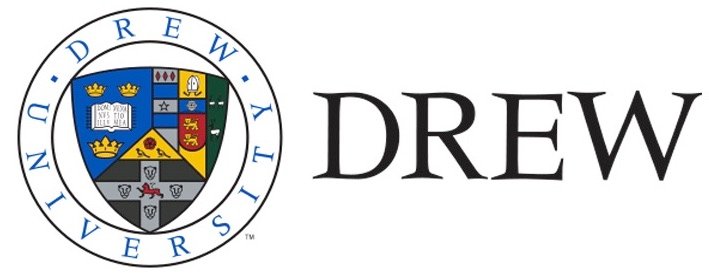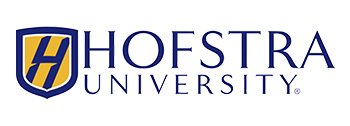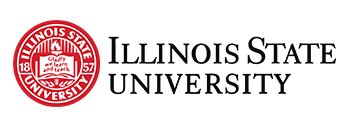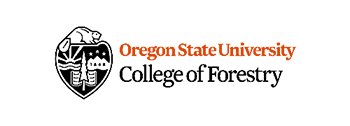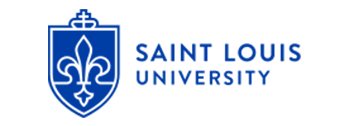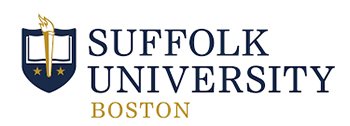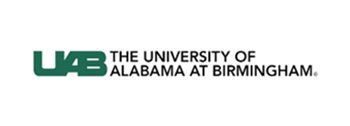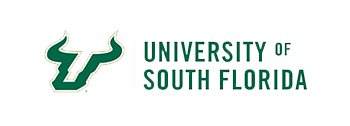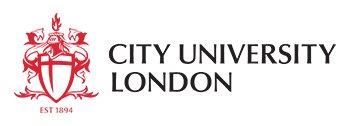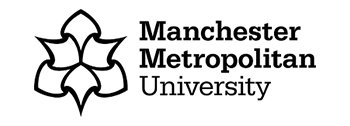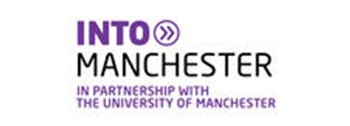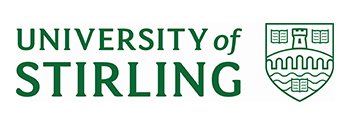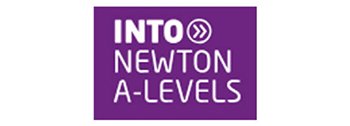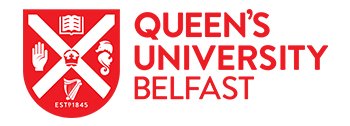A popular destination among Indian students
Its quality of education, variety of courses to choose from, and post-study work opportunities make it one of the most desirable destinations among Indian students. When you opt to study in Australia, you get to choose from 22,000 courses available in 1,100 universities and institutions, acquire globally-recognized degrees, explore various scholarship opportunities and receive education from the best instructors in the world.
Internationally accredited qualifications
Australian qualifications are globally recognised, and universities in Australia are renowned for their research and training methodologies. Their teaching pedagogy is valued worldwide for their academic excellence, with seven of Australian universities consistently ranking in the top 100 of the QS World Ranking and Times Higher Education Rankings.
Rights for international students
You can’t beat Australia when it comes to implementation of rights and consumer protection. It has the most rigorous consumer protection for international students. As per the Australian Education Services for Overseas Students (ESOS) Act 2000, all programs that are offered to overseas students meet stringent government regulations.
Lingual diversity
Australia offers an unsurpassed international exposure with the world’s highest proportion of immigrants in a developed country. You’ll find over 200 languages and dialects being spoken in Australia. Not only this, you can spot a decent crowd of Indians to interact and celebrate local festivals with. New South Wales has 95,387 people of Indian descent, Victoria has 111, 787 and Queensland houses 30,259 Indian Australians* (stats subject to change). Other ethnicities you’ll come across in Australia include Italians, Greeks, Arabs, and Chinese. Languages from all these regions are widely spoken in Australia, making it one of the most diverse nations in the world.f
| S.No | University Name |
|---|---|
| 1 | The University of New South Wales, Sydney |
| 2 | The University of Queensland, Brisbane |
| 3 | Monash University, Melbourne |
| 4 | The University of Adelaide, Adelaide |
| 5 | The University of Newcastle, Newcastle |
| 6 | Macquarie University, Sydney |
| 7 | Curtin University, Perth |
| 8 | Queensland University of Technology, Brisbane |
| 9 | RMIT University, Melbourne |
| 10 | Deakin University, Melbourne & Geelong |
| 11 | University of South Australia, Adelaide |
| 12 | Griffith University, Gold Coast & Brisbane |
| 13 | University of Tasmania, Hobart, Launceston and Sydney |
| 14 | Swinburne University of Technology, Melbourne |
| 15 | La Trobe University, Sydney & Melbourne |
| 16 | Flinders University, Adelaide |
| 17 | James Cook University, Townsville, Cairns & Brisbane |
| 18 | Western Sydney University, Sydney (Paramatta & City campuses) |
| 19 | CQUniversity Australia, Sydney, Melbourne, Brisbane & Perth |
| 20 | University of Southern Queensland, Toowoomba & Sydney |
| 21 | Southern Cross University, Gold Coast, Lismore and Coffs Harbour |
| 22 | Australian Catholic University, North Sydney, Melbourne, Brisbane, Canberra, Adelaide |
| 23 | Charles Sturt University, Wagga Wagga |
| 24 | Le Cordon Bleu, Adelaide, Sydney, Melbourne & Perth |
| 25 | International College of Management Sydney |
| 26 | Engineering Institute of Technology, Perth |
| 27 | Airways Aviation, Gold Coast and Sunshine Coast |
| 28 | The Hotel School, Sydney, Melbourne & Brisbane |
| 29 | Australian College of Applied Psychology, Sydney |
| 30 | SAE Institute, Brisbane, Sydney, Melbourne, Adelaide & Perth |
| 31 | Australian National University College, Canberra |
| 32 | UNSW Global, Sydney |
| 33 | Monash College International Twinning Program |
| 34 | Taylors College Sydney |
| 35 | The University of Adelaide College |
| 36 | UTS College, Sydney |
| 37 | The University of Newcastle College of International Education, Newcastle |
| 38 | Curtin College, Perth |
| 39 | Deakin College, Melbourne |
| 40 | South Australia Institute of Business & Technology, Adelaide |
| 41 | Griffith College, Gold Coast & Brisbane |
| 42 | La Trobe College, Melbourne |
| 43 | Edith Cowan College |
| 44 | Eynesbury College, Adelaide |
| 45 | Sydney Institute of Business & Technology |
| 46 | University of Canberra College, Canberra |
| 47 | James Cook University College |
| 48 | Sarina Russo Institute, Brisbane |
| 49 | Russo Business School, Brisbane |
| 50 | Charles Darwin University International College |
| 51 | Dolph Business School, Reservoir |
| 52 | Intensive English Language Institute, Adelaide |
| 53 | Australia Institute of Business and Technology, Upper Mount Gravatt |
| 54 | Reach Community College, Hobart |
| 55 | Australian Health and Management Institute, Parramatta |
| S.No | University Name |
JOB OPPORTUNITY AS A STUDENT
Did you know that you can cut down your cost of living and gain work experience while pursuing your study program in Australia? Thanks to Australian laws, working part-time on a student visa for up to 40 hours every two weeks is permitted.
What are your options?
| 1 | On-campus | Common jobs available on the campus include barista, library assistant, campus tour guide, research assistant, etc. |
|---|---|---|
| 2 | Retail | From small stores to chains of departmental stores, the staff is required everywhere. Students tend to form a major chunk of their staff. |
| 3 | Hospitality | You could look out for employment in restaurants, bars, hotels, multiplexes, takeaway stores, etc. |
| 4 | Tutoring | If you have existing qualifications or professional work experience, you might be able to get casual or part-time work in your field |
| 5 | Office jobs | If you’re lucky enough, you may also be able to get office jobs like that of an administrative assistant, marketing/sales intern, social media intern, designer, developer, etc. |
| 6 | Freelance | If you have prior experience in fields like writing, designing, coding, accounting, admin support, etc., you could find work on freelancing websites such as Upwork, Fiverr, Peopleperhour, Guru, etc |
| 7 | Miscellaneous | Other jobs that you could take up include babysitting, pet care, running errands, driving, farming, fruit picking, etc. |
| 8 | Volunteering | Several charities and non-government organizations (NGOs) in Australia need volunteers to help out. It can be a great way to meet friends, get some hands-on work experience, and give back to the community |
Do universities help students find employment?
Yes, you can always reach out to your university’s career services and they help you with career advice and suitable vacancies in the city.
Most student visas allow up to 40 hours of work every two weeks during your course. You may also be able to work as many hours as you like during semester breaks. However, double-check your visa before starting any kind of paid work.
How to find work while studying
- Ensure that your CV is updated
- Look for job ads in newspapers and online job sites such as SEEK, Indeed, Gumtree, etc.
- Check if your institution has any job notice-boards on campus or online
- Reach out to your university’s career services for help
- Register your interest with a recruitment firm
- Network. Be active on LinkedIn, join relevant forums, participate in meetups and build relationships with people in your industry.
Working after completion of your studies in Australia
If you want to stay and work in Australia after you finish your studies, you’ll need to get a new visa first.
If you have completed a Bachelor’s, Master’s, or Doctoral degree, you may be eligible for the Post-Study Work stream of the Temporary Graduate (subclass 485) visa.
In some cases, your new employer may be able to sponsor you for a new visa. You should speak with someone from your work’s Human Resources or Recruitment team to find out if this is possible.
If you don’t have an employer to sponsor you, and want to stay in Australia longer-term to develop your professional career, you can submit an Expression of Interest (EOI) through SkillSelect.
How to find work after graduation
Students in India are often dependent on college placements for getting a job after completion of their studies. However, there’s no concept of campus drives and placement guarantee abroad – you’ll have to look for suitable jobs yourself.
Your university’s career service will be there to assist you with your job interviews or even connect you with suitable employers, but the rest is your battle.
Always keep your network and skillset strong. Ensure that you do relevant internships during your program and acquire decent business communication skills. You could also ask for reference letters from your university professors or program coordinators.
Studying abroad can be an expensive affair but planning your budget smartly can help you get a hold of your finances effectively. Before you depart from India, ensure that you consider expenses like accommodation, food, health coverage and travel along with your tuition fee when calculating the estimated cost of studying in Australia. This will help you plan your budget more effectively.
1. Tuition fee is your prime expenditure
Your expenditure on tuition fee depends on the type of qualification and the university or school you opt for. For instance, veterinary and medical degrees cost substantially more than other degrees. The average tuition fees at one of Australia’s tertiary institutions ranges between AUD 20,000 and AUD 30,000 a year.
| S.No | Study Program | Average Fee (in Euros*) |
|---|---|---|
| 1 | School | $7,800 to $30,000 annually |
| 2 | English language studies | $350-450 weekly (varies as per course length) |
| 3 | Vocational Education and Training (Certificates I to IV, Diploma and Advanced Diploma) | $4000 – $22,000 annually |
| 4 | Undergraduate Bachelor’s degree | $15,000 – $35,000 annually |
| 5 | Postgraduate Master’s Degree | $20,000 – $42,000 annually |
| 6 | Doctoral Degree | $20,000 – $42,000 annually (attractive scholarships up to 100% available with living grants on meeting the university requirements) |
*Please note all figures are indicative
Most commonly, courses in humanities, arts, and education are a little cheaper, while subjects such as medicine and engineering are likely to be more expensive. If you wish to study at a postgraduate level, the tuition fee is typically higher, and the costs vary depending on the program. If you want to bring down your educational expenses, it is best to apply to various scholarships are available for Indian students.
2. Where will you live? Calculate accommodation costs
Most universities in Australia offer on-campus residence facilities to international students. You can also opt for off-campus accommodation wherein you can share apartments with other students from India or stay with a local Australian family. The rent is usually paid every two weeks in advance. Remember, the rentals vary from city to city.
3. Cost of your student visa
To study in Australia, the first step is to secure a valid student visa that comes with its own costs (approx. AUD 606). Feel free to consult your Reagan Global counselor for the latest updates and information on the visa application process and related costs.
4. Living expenses
You need to keep a little money aside for your grocery shopping, social activities, and emergencies. When living in a foreign country as a student, it is better to keep track of your expenditures so that you do not overspend. According to the Australian Government, general living expenses amount to $21,041 per year. An international student spends between $20,000 and $27,000 per year (given your living arrangements and personal choices).
5. Keep safe. Consider health support and insurance
It is mandatory for all students scheduled to travel to Australia from India to get medically insured before the commencement of their program. The average cost for medical insurance ranges around AUD 500 a year (indicative). Extensive health and support services are readily available for all Indian students in Australia.
6. Don’t ignore your taxes
Indian students in Australia cannot work without acquiring their Tax File Number (TFN). With this, you are allowed to work 20 hours per week during academic sessions and full-time during vacations. If you choose to work along with your studies, your earned income will be taxable.
Remember, the exchange rate variations may also affect your budgeting. We suggest you also look for a part-time job while you are studying in Australia or seek scholarships in the universities you apply to. This can help lower your cost of studying abroad to a great extent.
Our Testimonials

The consultancy guide as per student aspirations. And the shortlisting as per student profile was seamless and easy. And visa interview guidance by taking mocks and giving tips is very helpful as I applied for US university. Especially Kavita mam mentorship helped me with mocks and shortlisting.
Overall my experience was the best with Reagan Global Consultancy


I took USA student process consultancy service from Reagan Global Services and I am satisfied with their work. In my opinion they know the in and out of the process w.r.t each college they are linked with. Special mention for Kavitha who is my counselor, she supported in all steps during the process. She has a mindset of plan B, where if plan A fails and she know how to get the work done. That's how I got admissions into multiple universities.


I am pruthvi Pasham. Thank you so much for your help sir it would be greatly appreciated and i am glad that i made it till here with your help and regan global services team during the time of admission. it helped me achieve my dream to get a master's degree from a reputed institution.


I would like to thank the internal department of Reagan Global for helping my son, Wade, in exceeding mine and his expectations in the subject of Math. Your company has given me the confidence that with additional assistance, my child's deficiencies are being overcome and improvement was made after the second session and has continued through the entire program. Not only were the tutors professional and excellent at their job, but they also were very sensitive to the needs of my child. Should I run across anyone that needs tutoring, I will not hesitate to mention RGS to them. Thank you very much for your help


Thanks to Reagan Global Services who helped me in finding a master’s program that best fits my work profession. Starting from counseling till University admission they guided me in every step. I’m happy with Reagan team for following up throughout the process. Post admission, US team was in regular contact with me during my travel to the US, suggested accommodations and checked my well being. They are amazing people, they are just a call away if you need any assistance. I’m still in contact with them and I’m really glad that I met them. I personally recommend Reagan Global Services for all the students/working professionals who are looking for a consultancy to pursue your dream education!


Instilling a trust in the student planning to study abroad is very important and I discovered the same here. I was not satisfied with the choice of universities for the Industrial Engineering program before coming here. The team helped with the best of the choices of suggesting me Public Research University and helped with all the process requirements.


Reagan GLobal services has kept up-to-date information on my domain of interest for the Master's. They have been very supportive and informative every step of the way when it comes to admissions to universities. They have been very careful about processing applications from international students. I commend regan global services for their level of professionalism and reliability throughout this process.


Being a very enthusiastic person, when I was exploring to study abroad during my final year of Engineering, along with my friends I just walked in for counseling and I was amazed on the details shared during my first visit itself. I decided to follow the process without any further doubts. The team is expert in helping with documentation, visa guidance and mock interview which helped me to crack the final interview.


Karthik has mastered quite a few concepts in math in the past few weeks. I am very impressed with the instructor. I initially had some doubts about the online training thing, but it has turned out to be perfect. The sound is clear and Kartik has been following it thoroughly. I have started recommending to as many as possible……Many Thanks!


I took a good decision to follow my dream of studying in USA after working for two years in Accenture. The team helped me with good choice of universities matching to my profile and I am happy to declare that I got into my dream University – Colorado State University for Engineering program concentrating on Energy Systems. I liked the personalized service devoted whenever I met the team towards my process.


Esosa's grades have picked up to four A's and two B's. We have been very pleased with your extraordinary customer service and quality of your program. Please keep up the good work; it is making a BIG difference. Thank you!




